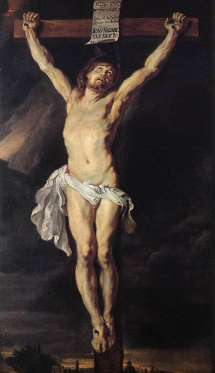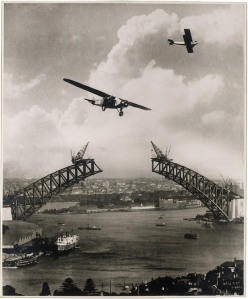Jim Harrison, author of 21 volumes of fiction, 14 books of poetry, a couple books of essays, a memoir, and a children’s book, died recently at the age of 78. I was fortunate to meet him twice. This is a recollection of one meeting. Forgive this rambling recollection. Death always sneaks up on us, an invisible wave in the night.
~~~~~~
Jim Harrison is hands down my favorite poet. Like lightning he conducts a charge generated by the differing poles of earth and sky. He soars with his feet planted firmly on the ground. My kind of poet.
I imagine that in some ways being a fellow Michigander has something to do with my admiration for his work, yet I know this explanation will not do. On a more basic level there is something elemental in our shared experience, a love of the natural world of snakes, rivers, mountains, thickets, and all manor of wild life.
I became acquainted with his work entirely by accident browsing a bookstore in Ann Arbor, Michigan. I picked up his novella Legends of the Fall, loved it, and moved on to other fiction and poetry. Reading his fiction or poetry, always created a conception of what might be possible in my own writing. I found an example of how a writer could construct a narrative all the while indulging his own discursive rambling trains. He trusted his impulse as a writer. For me at the time I wasn’t able to trust in much, especially own writerly instincts.
I met Harrison while working as an assistant to a U.S. congressional candidate. The campaign would eventually lose the election but the experience traveling around the upper half of the lower peninsula and the entire upper peninsula of my native Michigan taught me a lot about rural politics and human nature. I suggested a meeting between my candidate and Harrison. Perhaps he would contribute to our liberal cause. The meeting was on. The contribution never materialized. It was also naive and presumptuous of me to entertain the notion since I did not know the author personally, and only conjectured what his sympathies, if any, to politics, local politics at that, could be.
This was a dry stop in terms of monetary campaign support but it energized us just the same. The three of us who visited Jim on that day were all moved in a different way by his cordial and warm reception. There was plenty of wine, and wild speculations on art and culture and the natural world. We came away know that we were in the presence of a poet. As Emily Dickinson said of authentic poetry, “If I feel physically as if the top of my head were taken off, I know that is poetry.” We all felt this strange pull as if he had lured us back into our bodies and the limitless souls we all inhabit.
We met at his cabin near Grand Marais in the fall of 1983. I was surprised by its small size and rustic condition. I thought an author of his stature would have more comfortable digs. I thought of him as a giant from reading his fiction and poetry. I did not yet know most American poets skirt the poverty level for some and sometimes all their lives. This was I believe on the cusp of his wide spread success, which came when his epic novella, Legends of the Fall, gained critical praise and was later made into a successful movie of the same name, staring Brad Pitt, Anthony Hopkins, Julia Ormond and Karina Lombard.
Harrison is a man whose imagination flowed in great curling leaps. I hear the rain drops on my dark window tonight and think what good fodder Harrison would have made of them in a poem. So much of his poetry features water imagery: streams, rivers, lakes, swamps, clouds –the sky’s oceans, our own watery bodies, and the patient tapping of the fingers of our watery fate. (The importance of water cannot be overestimated in his poetry or in our lives. Eventually, we all die of dehydration, a lack of water.) He inspires us to think back and forth across our short, little, self-important lives for the earth-bound transformational epiphanies seemingly but not out of reach in the natural world. Harrison offered no sugar coat on our existence, yet a kind of hope in a full life in step with the natural world as it infiltrates our souls when we are open to it.
We met him as the sun was beginning to cut the cool air of the morning. We sat at a picnic table outside his spartan cabin. The three of us in the campaign wore dress shirts. He was wearing a red sleeveless shirt. A gallon bottle of red wine sat on the table from which he poured libations in small glasses. His talk roamed the planet, though he kept returning the conversation to the animals he was keeping an eye out for near the creek that ran nearby.
I must admit I couldn’t keep up with the lines of his thought. His rangy references from philosophers to scientists to oriental landscape painters were, as they say, out of my pay grade. Yet all through the conversation he returned again and again to the animals — a bear and a coyote, in particular. Every time our candidate attempted to bring up political issues, Jim would slyly turn the conversation around and up and over to his obsessions with the coming and goings of animals. Leaving that day, I was left with the impression he was verbalizing parts of poems he was working on. I remember he said, though I cannot recall his exact his words, something to the effect, ‘That bitch coyote came by last night. I don’t know what she wants but she lives not far from here.’ Perhaps his muse of the day or week.
He led us on a two hour journey of the heart and soul. When we left I realized I never met a man so inspired, so big-hearted, so radically honest with himself and others. It was humbling to met someone so brilliant; gratified to meet one so gracious. He didn’t know us or owe us anything, and treated us as a fellow human beings. I am certain we must have appeared as members of a different tribe than his, yet he seemed interested in us regardless of affiliation.
That day resounds like a bell in my memory. Though his literary references were off the charts of my newly minted bachelor of arts education, I saw in him the fruits of intense listening in the world inside and outside our own heads. Learning to see without reserve takes guts and has costs. He drove me deeper into this world. For that I’m am forever grateful.
He struck me that day, and at a subsequent chance meeting at a bar in Marquette a few weeks later, as a man deeply witnessing the foibles and profound depths of his own being. The experience lead me to remain fixed on the task to remain an authentic witness to all personal experience. We are taught titanic deceptions in school, in churches, and the workplace. Jim Harrison was a great poet who recognized early on that our imagination is our greatest weapon in combating what is unthinkingly accepted as true.
~~~~~~~
Larson’s Holstein Bull
by Jim Harrison
Death waits inside us for a door to open.
Death is patient as a dead cat.
Death is a doorknob made of flesh.
Death is that angelic farm girl
gored by the bull on her way home
from school, crossing the pasture
for a shortcut. In the seventh grade
she couldn’t read or write. She wasn’t a virgin.
She was “simpleminded,” we all said.
It was May, a time of lilacs and shooting stars.
She’s lived in my memory for sixty years.
Death steals everything except our stories.




You must be logged in to post a comment.